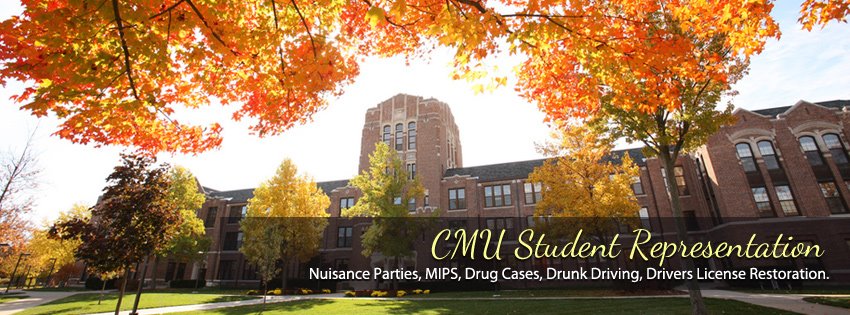Diversion/Deferral Programs in the State of Michigan:
What is a diversion or a deferral program?
The Michigan Legislature recognizes that people make mistakes. Thus, under certain statutes the State of Michigan offers “deferral” or “diversion” programs that allow offenders to walk away with a “clean” slate. The term clean slate refers to there being no public record of the offense. Every court handles diversions and deferrals differently (to a varying degree). Generally, all diversions and deferrals include a probationary term for the defendant, classes that the defendant would have to complete, fines/costs, and community service (some courts could require more). Essentially: diversions and deferral programs offer a “bite of the apple” allowing individuals to escape the court process minimizing the individuals exposure from a permanent public criminal record..
Diversion Programs
Diversion programs are a way for defendants/offenders to keep a criminal conviction off their public record (often without having to plead guilty or go to trial). Diversion programs are typically for low level offenses such as misdemeanors and non-violent felonies. Each court has its own criteria for diversions. There will be limits as to the types of offenses that are permitted and there may be residency requirements. The programs are usually reserved for first-time offenders.
The way it usually works is that the prosecutor will dismiss your case upon the contingency that you will successfully complete the diversion program. The length of the diversion program and the requirements attached to it are determined by the severity of the offense, and which court you are in.
Deferral Programs:
1. Domestic Violence Cases, MCL 769.4a
2. Controlled Substance Cases MCL 333.7411 “7411”
3. Delayed Sentencing MCL 771.1
4. Holmes Youthful Trainee Act (HYTA) MCL 762.11
5. Minor in Possession of Alcohol MCL 436.1703 (3)
1. DOMESTIC VIOLENCE CASES
MCL 769.4a authorizes a court, without entering a judgment of guilt and with the consent of the accused and of the prosecuting attorney in consultation with the victim, to defer further proceedings in an assault and battery case when an individual who has not been convicted previously of an assaultive crime pleads guilty to, or is found guilty of, assault and battery under MCL 750.81 AND 81A. The victim of the assault must be the offender’s spouse or former spouse, an individual who has a child in common with the offender, an individual who has or has had a dating relationship with the offender, or an individual residing in the same household as the offender. THIS DEFERRAL can be utilized only if the accused has no prior assaultive conviction. For law enforcement, although a judgment of guilt is not entered, the arrest and the disposition by utilization of the deferral statue will appear on the criminal record of the defendant.
2. CONTROLLED SUBSTANCE CASES
Another deferral statue that may be available to a defendant is MCL 333.7411, “7411.” This law allows an individual who has been charge dwith a nonmajor drug offense to walk away without a drug conviction after successful completion of the court’s sentence. Nonmajor drug offenses are usually simple possession of controlled substance offenses for marijuana, cocaine, herion, or ecstasy. Major offenses not “7411” eligible are offenses that involve delivery or manufacture of drugs, including possession with intent to deliver and maintaining a drug house.
3. DELAYED SENTENCING
This is not technically a deferral, although MCL 771.1 authorizes a court, without entering a judgment of guilt, to delay sentencing for no more than one year in all prosecutions for felonies, misdemeanors, or ordinance violations other than murder, treason, criminal sexual conduct in the first or third degree, armed robbery, or major controlled substances offenses. This deferral does not require the prior consent of the accused, the prosecutor, or the victim.
4. HOLMES YOUTHFUL TRAINEE ACT (HYTA)
HYTA, MCL 762.11, is another deferral law that has specific age restrcitions. To receive HYTA consideration, a defendant must have committed the crime charged between the ages of 17 and 21. However, with prosecutorial discretion HYTA may be used for certain individuals until they are 24. HYTA is not allowed for a number of offenses, including all offenses for which the penalty is life, all traffic offenses, and most criminal sexual conduct offenses. MCL 762.11 (2),(3). As with the other deferral statues, HYTA will allow for a non-public record of the offense. Additionally, you must satisfy all the sentence requirements of the court.
5. MINOR IN POSSESSION OF ALCOHOL
“MIP” MCL 436.1703(3) Authorizes a court, after fulfillment of the terms and conditions of probation, to discharge the defendant and dismiss the proceedings. To qualify for this deferral the defendant must not have been previously been convicted of or received a juvenile adjudication for being a minor who purchased or attempted to purchase alcoholic liquor, consumed or attempted to consume alcoholic liquor , possessed or attempted to possess alcoholic liquor, or had any bodily alcoholic content. Michigan is currently considering an MIP 1st to be a civil infraction. For more on that click here.
For a free consultation contact Todd Levitt at 989-772-6000


